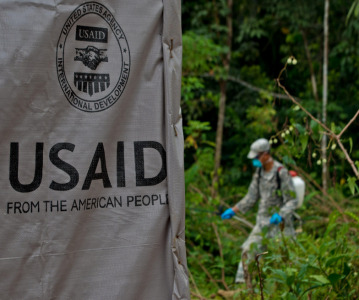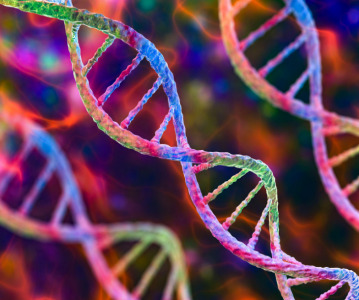Thermo Fisher and Charles River join consortium using robotics to produce cell therapies at scale
.jpg)
The Consortium aims to increase the scale of cell therapy manufacturing to a level impossible with current manual processes.
Thermo Fisher Scientific and Charles River Laboratories have joined a consortium aiming to develop a robotic manufacturing system capable of creating gene modified cell therapies on an industrial scale. Both companies say the initiative will result in ‘industry-defining technology’ that will lower manufacturing costs, reduce bottlenecks and increase patient access to cell and gene therapies.
The Consortium was established by Multiply Labs, a US-based robotics developer, in 2021 and the team is rounded out by UCSF and Cytiva. Robotics development activities are coordinated by Multiply Labs, while the cell manufacturing process is overseen by UCSF through a sponsored research agreement.
Speaking about the news, Multiply Labs CEO Fred Parietti said: ‘We are very excited to combine Multiply Labs’ cutting-edge expertise in cloud-controlled robotics with the GMP-ready, market-leading instrumentation technologies by Cytiva, Thermo Fisher and Charles River’.
Thermo Fisher will collaborate with Multiply Labs on automating the operation of incubators that are utilized in the expansion of cells to therapeutically relevant levels, while Charles River will integrate its microbial testing equipment into the Multiply Labs Cluster to enable in-process product release testing. Cytiva, an early member, focuses on the automation of the Xuri bioreactor.

Image: The Multiply Labs Cluster, a configuration of 2x5 cube modules on each side that stands nine feet tall.
Speaking to CPHI, Matthew Hewitt, Executive Director, Scientific Services Cell and Gene Therapy at Charles River, explained that while cell and gene therapies have the potential to offer curative therapeutics, the complexity of manufacturing them presents a major hurdle to patient access.
‘To fully realise the promise of cell and gene therapies, therapeutic developers need access to closed, automated manufacturing platforms which efficiently scale manufacturing for large patient populations,’ he said.
Betty Woo, Vice President and General Manager of Cell and Gene Therapy at Thermo Fisher Scientific, echoed these sentiments.
She said: ‘Automating the manufacturing process removes limiting factors such as the manual processing of cells, which may be susceptible to human error, while increasing the robustness and reproducibility of the manufacturing process. In short, automation is necessary for industrializing cell therapy manufacturing.'
Woo added that the automated process maintains aseptic conditions, which is critical for patient safety, and increases product quality through process reproducibility, robustness, and consistency.
‘By increasing the reproducibility of this process, we can better plan production to meet the demand for these life-saving therapies,’ she said.
According to a recent Catalent report, bottlenecks are the most common hurdles faced by cell and gene therapy developers. Geopolitical concerns and issues arising from the COVID-19 pandemic have exacerbated pre-existing difficulties in this area.
As therapies for indications with large patient populations (such as solid tumors) develop, the ability to scale manufacturing efficiently will become even more important.
The Consortium plans to present this technology at UCSF by the end of this year.
Related News
-
News US FDA adds haemodialysis bloodlines to devices shortage list
On March 14, 2025, the US FDA published an open letter to healthcare providers citing continuing supply disruptions of haemodialysis bloodlines, an essential component of dialysis machines. -
News Women in Pharma: Manufacturing personal and team success
Our monthly Women in Pharma series highlights the influential lives and works of impactful women working across the pharmaceutical industry, and how the industry can work towards making the healthcare industry and workplace more equitable and inclusive... -
News Pfizer may shift production back to US under Trump pharma tariffs
At the 45th TD Cowen annual healthcare conference in Boston, USA, Pfizer CEO Albert Bourla outlined the potential for Pfizer to shift its overseas drug manufacturing back to the US as pharmaceutical industry players weigh their options against Presiden... -
News Experimental drug for managing aortic valve stenosis shows promise
The new small molecule drug ataciguat is garnering attention for its potential to manage aortic valve stenosis, which may prevent the need for surgery and significantly improve patient experience. -
News Women in Pharma: Connecting accessible pharma packaging to patients – a Pharmapack Special
Throughout our Women in Pharma series, we aim to highlight how CPHI events encourage discussions around diversity, equity, and inclusion initiatives in the pharmaceutical industry. -
News Vertex Pharmaceuticals stock jumps as FDA approves non-opioid painkiller
UK-based Vertex Pharmaceuticals saw their stock shares soar as the US FDA signed off on the non-opioid painkiller Journavx, also known as suzetrigine, for patients with moderate to severe acute pain, caused by surgery, accidents, or injuries. -
News Trump administration halts global supply of HIV, malaria, tuberculosis drugs
In various memos circulated to the United States Agency for International Development (USAID), the Trump administration has demanded contractors and partners to immediately stop work in supplying lifesaving drugs for HIV, malaria, and tuberculosis to c... -
News 2024 Drug Approvals: a lexicon of notable drugs and clinical trials
50 drugs received FDA approval in 2024. The centre for biologics evaluation and research also identified six new Orphan drug approvals as under Biologics License Applications (BLAs). The following list picks out key approvals from the list, and highlig...
Position your company at the heart of the global Pharma industry with a CPHI Online membership
-
Your products and solutions visible to thousands of visitors within the largest Pharma marketplace
-
Generate high-quality, engaged leads for your business, all year round
-
Promote your business as the industry’s thought-leader by hosting your reports, brochures and videos within your profile
-
Your company’s profile boosted at all participating CPHI events
-
An easy-to-use platform with a detailed dashboard showing your leads and performance







